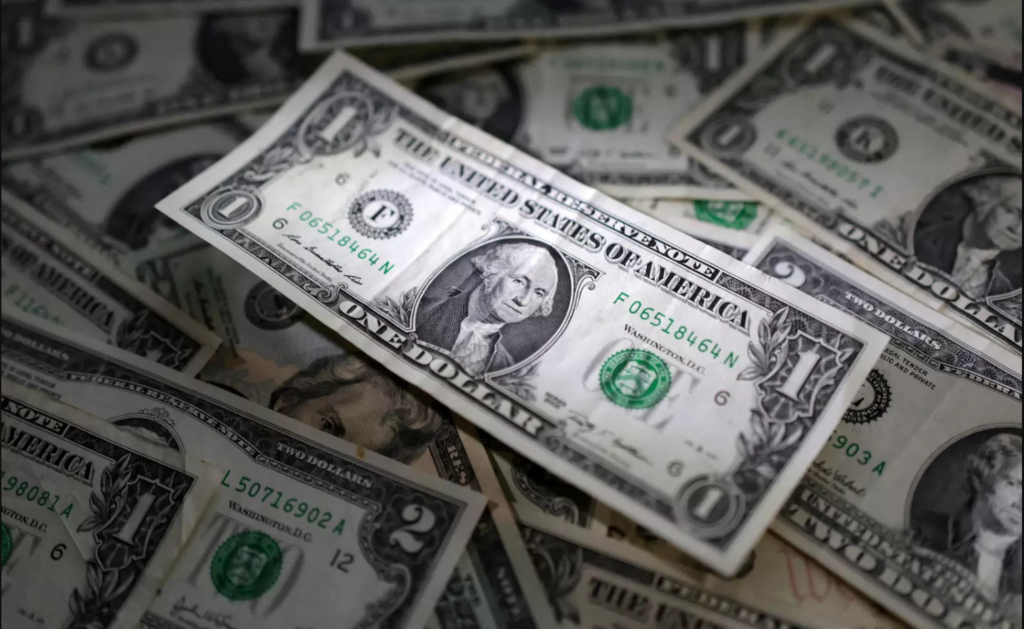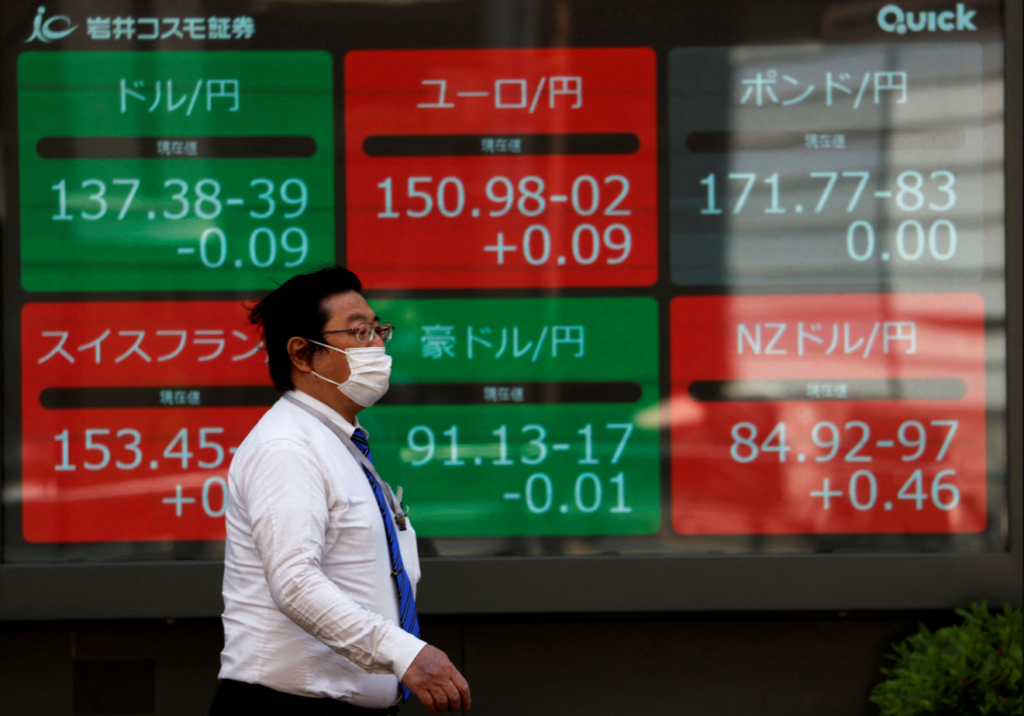
Asian stocks rose, the dollar weakened, and gold remained near record highs on Friday, as investors remained concerned about the U.S. financial sector following another sell-off in regional lender shares.
Japan’s (.MIAPJ0000PUS) stock market was up 0.44 percent and poised to end a two-week losing streak. The Japanese market remains closed for the holiday, while the Australian S&P/ASX 200 index (.AXJO) fell 0.06%.
PacWest Bancorp’s (PACW.O) decision to explore strategic alternatives heightened concerns about the health of U.S. lenders at a time when regulators are under increasing pressure to take additional steps to bolster the nation’s banking sector.

The Asia-Pacific stock index with the greatest coverage outside of the region.
Following the failure of First Republic Bank over the weekend, which reignited fears of a financial sector crisis, regional bank equities in the United States declined this week.
“With the dust barely settling from Wednesday’s Fed meeting, banking sector developments have bolstered the belief that not only is the Fed done tightening, but that it will cut rates aggressively before the end of the year,” said Ray Attrill, head of FX strategy at National Australia Bank.
Wednesday, the Federal Reserve increased interest rates by 25 basis points, but signaled that its lengthy rate-hike cycle may be drawing to a close.
According to the CME FedWatch instrument, the markets expect the Fed to leave interest rates unchanged at its upcoming June meeting, but to begin reducing rates in July.
Investors will focus on April nonfarm payroll data later in the day. The report will be used by the strategists at Saxo Markets to gauge the Fed’s next move, whether it be a hiatus or “further policy tightening.”
“It is important to note that there will be a wealth of information between now and the Fed’s meeting on June 14,” they said. “However, the banking sector is currently more important.”
The European Central Bank increased interest rates by 25 basis points to 3.25 percent on Thursday and signaled that further tightening would be necessary to combat inflation.

Having raised rates by the greatest amount in its 25-year history, the ECB, the central bank for the 20 countries that share the euro, is moderating the pace of monetary policy tightening in light of data indicating that the euro zone economy is barely expanding and banks are closing credit taps.
Markets reduced their projections for the rate of future rate increases.
Despite ECB President Christine Lagarde’s efforts to divert markets away from this narrative, it is evident that the ECB is in the concluding phases of monetary tightening, according to Nick Rees, FX market analyst at Monex Europe.
China shares (.SSEC) were up 0.21 percent and Hong Kong’s Hang Seng index (.HSI) was up 0.6 percent, contributing to the region’s stock market gain.
China’s service activity grew for the fourth consecutive month in April, according to a private survey released on Friday, as businesses continued to benefit from the country’s reopening despite a slight decline.
According to government data, domestic travel increased by more than two-thirds during the five-day May Day holiday period compared to the same period last year.
Following Apple’s announcement, S&P 500 E-mini futures rose 0.35 percent.
Inc’s (AAPL.O) results surpassed expectations, aided by stronger-than-expected iPhone sales and significant market penetration in India and other emerging markets.
The Japanese yen strengthened 0.20 percent to 134.04 per dollar on the currency market due to demand for safe-haven assets, placing it on pace for its first weekly gain in nearly a month. /FRX
The final price of sterling was $1.2591, an increase of 0.15% on the day, while the euro strengthened to $1.1034 (an increase of 0.21%).
The dollar fell against a basket of currencies by 0.109%.
The spot price per ounce of gold was $2,051.48, which was near to its all-time high of $2,072.49.
Brent rose 0.47 percent to $72.82 per barrel, while U.S. crude increased 0.47 percent to $68.88 per barrel.
